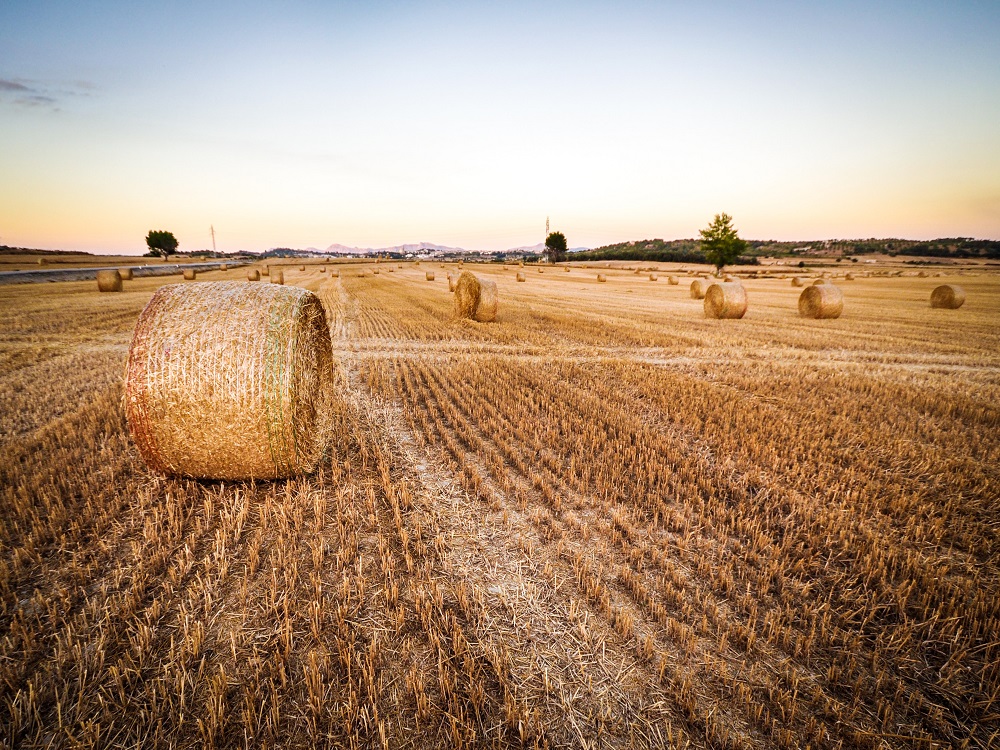Rural property and business update – 14 September
In this week’s Rural Update we look at the impact of currency on commodity prices (significant), take a look at the progress of the UK’s various trade negotiations (patchy) and share a selection of the latest developments of interest to farmers and estate owners including funding to plant trees along the route of HS2. Andrew Shirley, Head of Rural Research
4 minutes to read
Commodity markets
A slide in the value of sterling towards a 10-year low against the euro has helped boost grain and lamb prices as they become more competitive on international markets. At the time of writing, rising concerns over a no-deal Brexit (see article below) had pushed sterling down to €1.08, just above the nadir of €1.06 seen this March.

A more positive performance against the US dollar and a slump in crude oil prices – Brent crude dipped back below US$40/a barrel last week after recovering to almost US$46 from its Covid low of US$22/barrel – means red diesel prices are also heading in the right direction for farmers.
Beef prices, however, failed to benefit from the currency play, falling back slightly after a strong performance in August that led to more animals coming to market. Deadweight prices remain 50p/kg up on the year.
But, contrary to the generally pessimistic outlook, Quality Meat Scotland is predicting that leaving the EU without a trade deal could actually help support cattle farmers. It says that tariffs on the 270,000 tonnes of beef imported from Ireland could outweigh the impact on the UK’s 150,000 tonnes or so of exports.
Trade deal update – Japan back on side, but tensions rise with EU and US
Stilton-gate (Rural Update 17th August) wasn’t enough to permanently derail the UK’s free trade deal with Japan that was signed in principle last week – the first since Brexit.
Trade minister Lizz Truss said the FTA, which includes reduced tariffs on imports of UK beef and pork, went beyond the EU’s current agreement with Tokyo and could lead to over £15 billion of extra commerce between the two countries (although 80% of that trade will be heading our way, the BBC reports).
However, the outlook for a trade deal with the EU took another stumble as Boris Johnson announced the Internal Market Bill which, it is claimed, reneges on certain aspects of the EU withdrawal agreement that he signed last year.
While the government says the legislation is necessary to protect the integrity of the UK and the peace process in Northern Ireland, it has been widely condemned, even by many Conservatives, as a breach of international law that could reduce trust in the UK.
Northern Ireland secretary Brandon Lewis conceded the bill would “break international law in a very specific and limited way”.
The EU, predictably, has reacted angrily threatening legal action and saying it will make it harder to strike a trade deal with the UK. But more worrying for the government will be the response of some US politicians.
Nancy Pelosi, Democrat speaker of the House of Representatives, said Brexit must not be allowed to “imperil” the Good Friday Agreement. If that happened there would be “absolutely no chance” of a US trade deal passing through the democrat-controlled Congress, she warned.
Investment bank Morgan Stanley says the risk of no-deal has now risen to 40%
Woodland – next HS2 tree grant window opens
Work on HS2, the controversial high-speed rail line that will initially link London to Birmingham , officially got underway earlier this month after being delayed by Covid-19. Landowners in a 25-mile zone around the route can benefit from the HS2 Woodland Fund that will pay them to plant new trees or restore ancient woodland sites. The next deadline for applications to be assessed by the fund’s review panel is 27 November.
Contact Edward Holloway for advice on forestry projects or acquisitions. We can also help with any compensation or compulsory purchase claims. Please get in touch with Tim Broomhead or Jonathan Scott-Smith
Rural issues – Fly-tipping and Broadband
Fly-tipping and poor broadband connectivity are always two of the biggest gripes raised by the respondents to our annual Rural Report Sentiment Survey, so two big numbers caught my eye while flicking through this week’s edition of Farmers Weekly.
£104,000 – the punchy price quoted by BT to connect a Cumbrian farmer to broadband under the government’s Universal Service Obligation.
81% - the percentage of respondents to a Farmers Weekly poll saying that rural crime has got worse since Covid-19. Fly-tipping was the most commonly report offence.
If you have any comments about any of the items in this update or would like to find out how Knight Frank could help your rural business please do email me.
Photo by Peter Kleinau on Unsplash